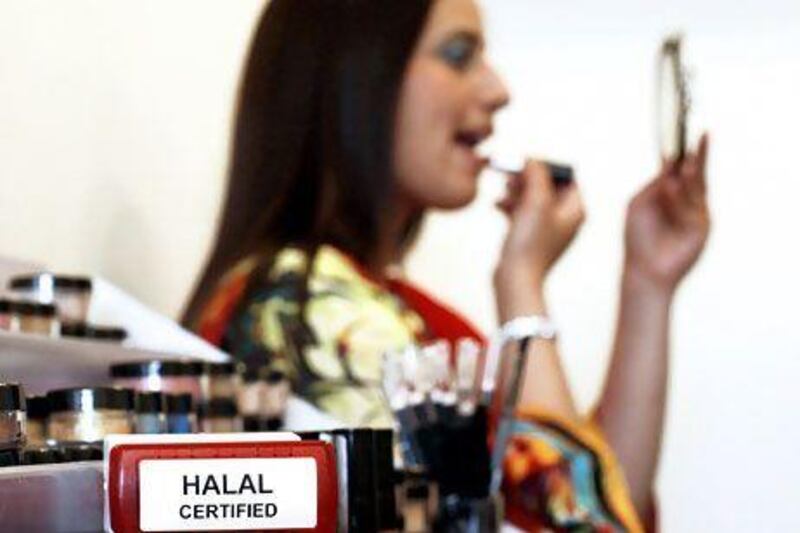Halal cosmetics, halal pharmaceuticals and charitable giving are among the areas Dubai seeks to develop as it strives to become a global "capital" for Islamic industries.
The emirate is seeking to draw the attention of local businesses towards sectors of Islamic commerce that are underserved at present, said Hussain Al Qemzi, who sits on the government committee tasked with the development of Islamic economy.
"Dubai is saying: here is a sector that has high potential, and is still not served yet," he said. "What we have to do is show the demand [for Islamic products]," he said.
Sheikh Mohammed bin Rashid, Vice President of the UAE and Ruler of Dubai, announced plans to refashion the emirate as the "capital of Islamic economy", setting it out as a pillar of Dubai's growth strategy for the years ahead.
Previously announced plans will also focus the emirate on Sharia finance, dispute resolution and halal food. Dubai intends to deregulate certain industries to allow for the growth of halal products.
The committee is expected to begin with the launch of one or two initiatives within the next six months, said Mr Al Qemzi, who is also the chief executive of Noor Islamic Bank.
"We have to look at any laws that present any hindrance and see if we can change the laws, and whether we can link certain industries in order to achieve this," said Mr Al Qemzi.
Halal medicine and cosmetics, which have been sold in Malaysia, "represent a huge potential market" in the Middle East, he said.
In both cases, testing must comply with Sharia standards on treatment of animals, while also ensuring that other haram products are not used, such as alcohol in aftershave.
Endowments for charity projects were also an expected area of focus to help build institutions and ensure their financial longevity.
"Charitable endowments is at the core of the Islamic system," he said. "We channel the charities into investment projects."
As one of the most established Islamic industries, it is expected that Sharia finance will play a big role in Dubai's plans.
The Arabian Gulf sold $21.3 billion (Dh78.23bn) of sukuk last year, a record total that Mr Al Qemzi doubts will be repeated this year.
However, he said there are opportunities to entice more companies to list sukuk on the UAE's exchanges.
"The UAE's sukuk is standing at around third worldwide, after Malaysia and London in terms of listing," he said.
"If you take some of the UAE issues that were listed in London, if you were to list them in the UAE we would have overtaken London [last year]."
Dubai's initiative could help to boost trade levels given a global shift towards regionalism, said Andrew Scott, a professor of economics at London Business School.
"Dubai focusing on Islamic markets is a good investment, a smart diversification and a good use of its comparative advantage," he said.
"The biggest gains from trade come from trade between very different partners. The Mena [Middle East and North Africa] market is a large population and has great diversity, so Dubai focusing on Islamic industries will help facilitate growth and interlinkages in this huge market."






